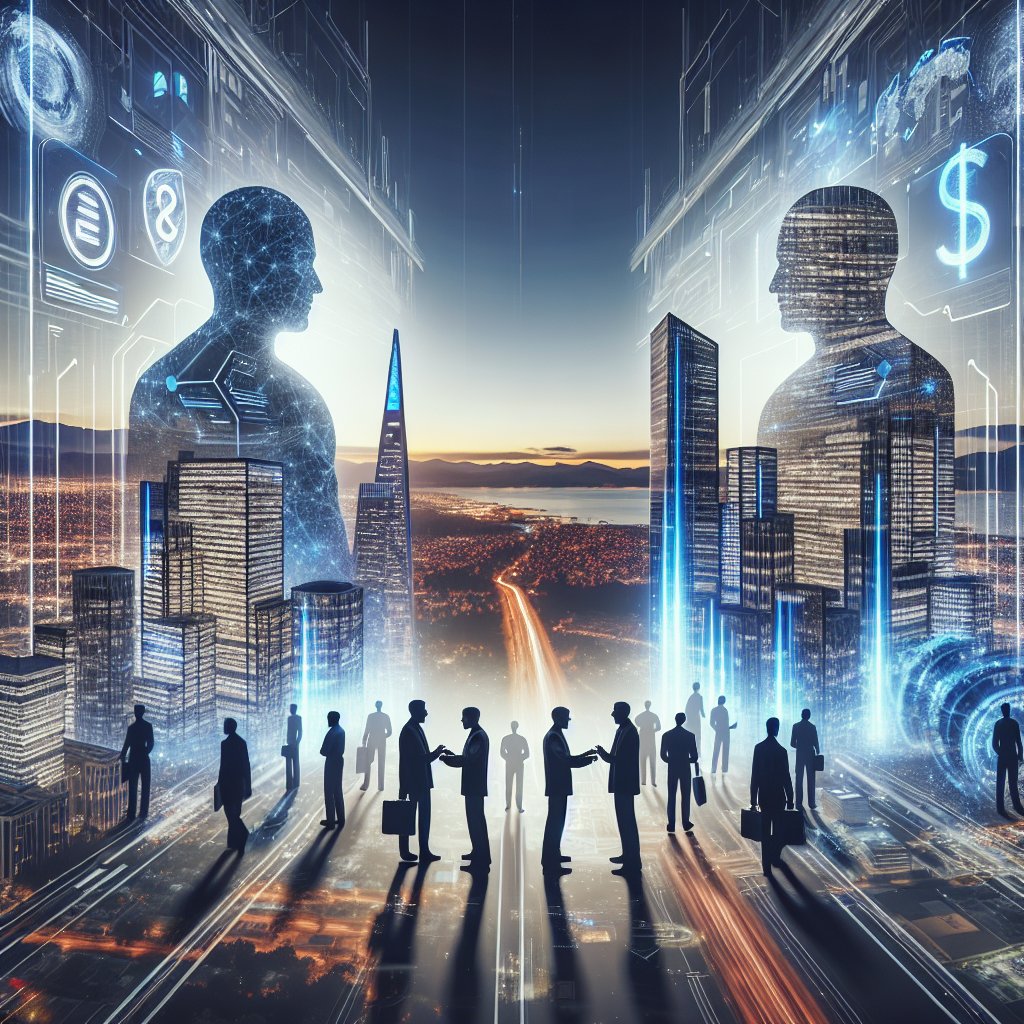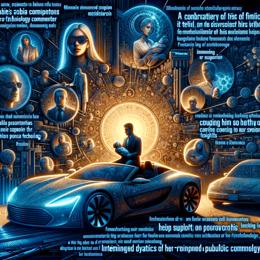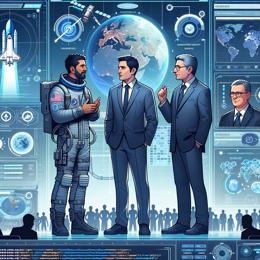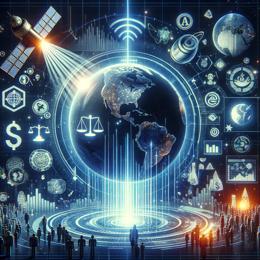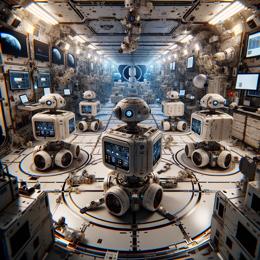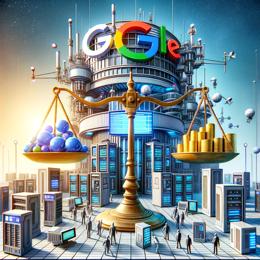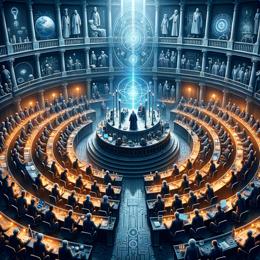Image created by AI
Lawsuit Illuminates OpenAI's Dual Nature Amidst Musk's Claims
The recent lawsuit filed by Elon Musk against OpenAI has thrown a sharp light on the dichotomy of Silicon Valley ethos, where high-minded ideals often pave the way for economic heft. OpenAI, once seen as a bastion of altruism in the artificial intelligence space, finds itself in a legal tussle with one of its early benefactors, raising critical questions about the moral compass guiding the evolution of such transformative technologies.
Musk, who originally provided seed funding for the nonprofit in its inception, anchored his lawsuit on the contention that OpenAI has veered markedly from its declared mission of benevolent AI development, into a lucrative commercial enterprise. At the heart of this accusation lies the uneasy transition of OpenAI from nonprofit idealism to its current commercial standing, a move underscored by a significant deal with Microsoft Corp., and the subsequent development and success of AI products like ChatGPT – a stark shift from the organization’s declared intent to protect humanity from the potential harms of AI.
This development takes on a shadowed layer when juxtaposed with Musk's historical relationship with OpenAI’s CEO, Sam Altman. Musk alleges that OpenAI promised to operate for the "good of the world," an assurance that seems at odds with their for-profit pursuits. In Musk's eyes, the deal between OpenAI and Microsoft, bringing the company's AI products into widely used software like Bing and Microsoft Office, represents a betrayal of this purpose, transforming a philanthropic pursuit into a profit-driven one.
Musk and Altman's earlier shared dedication to mitigating the perils of artificial general intelligence (AGI), as envisioned in their co-founding of OpenAI, presents a troubling contradiction with the present scenario. The lawsuit emphasizes this philosophical parting, pointing out Altman's portrayal of OpenAI as an enterprise capable of not only harnessing but also monopolizing the untapped wealth potential of AGI, hinting at his own expansive ambitions.
However, the lawsuit's credibility is marred by the apparent lack of formal agreements underpinning Musk's claims of breach; instead, there exist emails and incorporation articles, which hold frail weight in the accountability argument put forth by Musk's legal team. Thus, the legitimacy of Musk's accusations becomes as ambiguous as the ethical stance of OpenAI itself.
Despite this, Musk's own entrepreneurial history, ripe with controversy and similar grandiose projections, inflects the proceedings with a layer of irony. His criticism of Altman's control over OpenAI seems inconsistent, given Musk's past attempt to take over the same organization and his ongoing influence over Tesla, where he advocates for an AI and robotics-dominated future in tandem with significant equity stakes.
The unfolding legal showdown articulates a broader industry flaw - the dissonance between proclaimed ethical commitments and the magnetic pull of commercial success. The implications of OpenAI's metamorphosis are vast, encompassing aspects of company oversight, ethical AI development, and the genuineness of Silicon Valley's prophetic visionaries.
As the lawsuit continues to fan the flames of controversy, the tech world watches closely, discerning not only the fate of one company but the trajectory of artificial intelligence as both a force for good and a vector for immense capital accumulation.
#GOOGLE_AD
